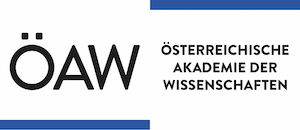ÖAW launch funding
The world view in any culture possesses a range of categories allocating all humankind a particular position along the axis of ‘own’ vs. ‘foreign’: crucial antithetic notions in the conceptualization of the social environment. The “space” in-between of both poles, hence, encompassing all those neither belonging to the inner circle of a community nor to total strangers, is shared by all “others” who might be further subdivided in closer and farther circles. However, the boundaries separating groups of people of different status (i.e., the circles of various radius with respect to the own community) could be fluid and to a certain extent permeable, which is a matter of each particular cultural context. The degree of permeability is described by the categories openness vs. closeness of a social community towards “others”.
The realization of the conceptual axis ‘own’ vs. ‘foreign’ is one of the central topics in linguistic anthropology. Since it enables deep insights into the dynamics and the driving forces of social interaction. The latter has already been in focus of scientific enquiry into the Balkans, however, in completely different socio-ecological settings.
In recent years, there has been an intense discourse on the view upon and the concept of the Balkans from the outside, which (as often happens) is tainted with stereotypes. The Balkans allegedly serve as a projection surface for the attribution of negative characteristics. In the heated discussions, however, this opinion was put into perspective by also exploring and analyzing the internal view, which itself is very multifaceted and equally also afflicted with stereotypes. While this debate on a macro level counterposes mostly Europe vs. the Balkans, the question of the internal reciprocal counter-perspectives and their conceptualizations, on the other hand, largely remains unknown and in fact unnoticed.
Involved researchers:
Katsiaryna Ackermann (PI)
Joachim Matzinger
Milica Santa
Niko Pavic
Tamara Haddad
Nermin Mahic
Antonio Punoš



